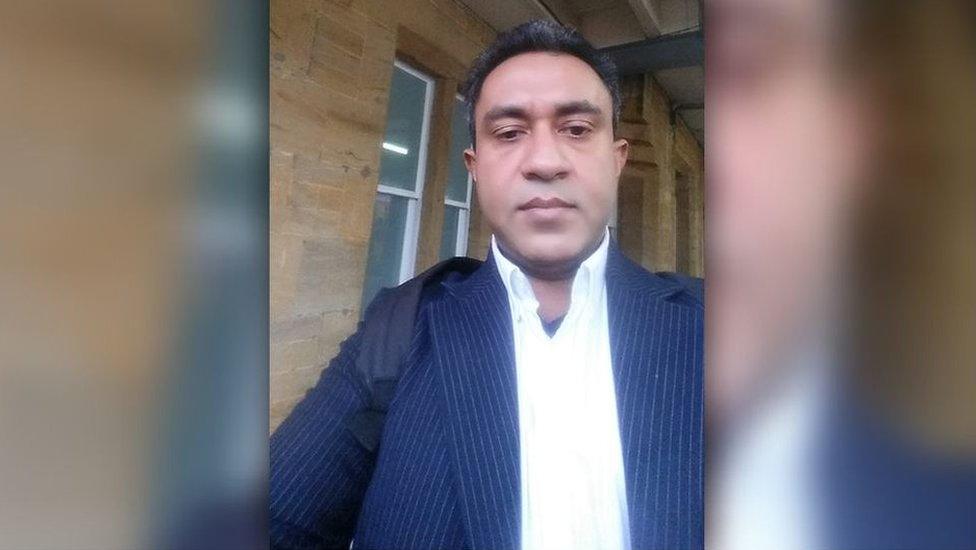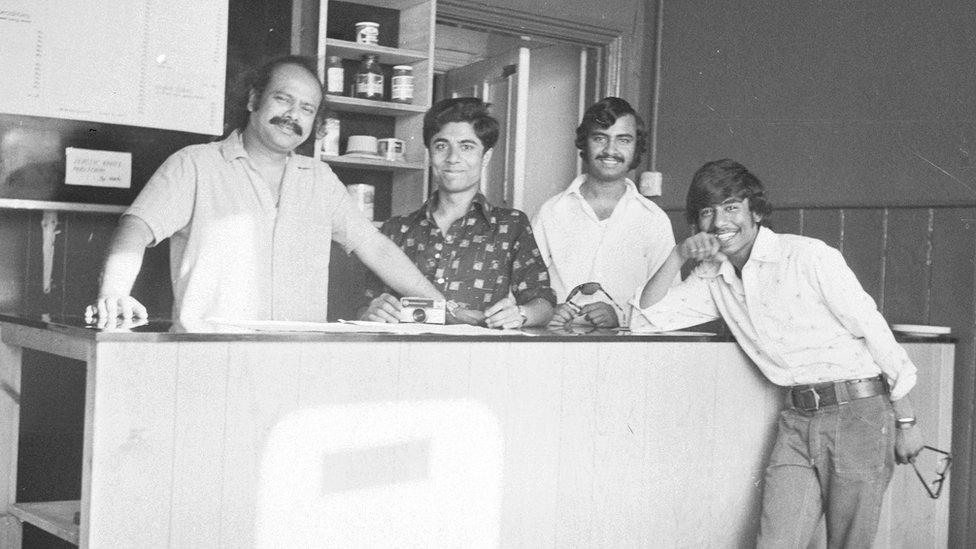Bangladeshi chef Saiful Islam fights deportation from UK
- Published

Saiful Islam, 44, moved to the UK to work in a restaurant
A chef from Bangladesh is fighting deportation from the UK after he was wrongfully labelled a sex offender.
Saiful Islam, 44, moved to the UK in January 2003 to work in a restaurant.
But his files were later mixed up with those of three other people, resulting in criminal convictions being wrongly attached to his name.
The Home Office has apologised to Mr Islam, who lives in Cardiff, for the mix-up - but he was still denied right to remain in December 2019.
According to a judicial review judgment, errors by the Home Office did not affect the decision to reject Mr Islam's application to stay in the UK, which was based on a 2008 application being refused as he did not have a work permit.
Along with wrongly attaching criminal convictions to his name, the errors included destroying part of his file and withholding it in a previous court case, and not providing relevant pages of his passport which proved he had entered the country legally - which Mr Islam maintains are the reasons he did not have a permit in 2008.
Judge Jackson ruled there had been "a number of errors" and "historic injustice" in the handling of Mr Islam's applications over a number of years, but documents "did not support" Mr Islam's claim that these directly led to his situation "nor was there any confirmation that he was still required in a particular employment".
Mr Islam said he planned to fight the decision. The matter has so far involved 18 court cases and a huge volume of correspondence with the Home Office.
While the Home Office said it could not comment on ongoing legal proceedings, it has confirmed to Mr Islam that three other profiles were mistakenly attached to his own.
It said all indefinite leave applications are considered on their individual merits in accordance with the immigration rules and when someone has no leave to remain in the UK, they are expected to leave voluntarily.
If they do not, their departure will be enforced.
Mr Islam has spent 16 years fighting to remain in the UK and, after a battle to obtain his file through the Information Commissioner, he discovered the errors and received a full apology in 2019.
'Innocence and courage'
Mr Islam, who has no convictions, said: "The Home Office has not treated me like a human being - they have treated me like a criminal.
"I have lost so many years, my health and money."
He said he had suffered depression as a result of his plight.
The trouble with Mr Islam's right to remain began in 2005 when he raised concerns about working conditions with his then employers, alerting the police and the Home Office. His permit was curtailed that year but he was not served with any notification.
But Judge Jackson ruled: "The historic injustice could not have had a material impact on the outcome of the specific decision under challenge."
Fizza Qureshi, chief executive of Migrants' Rights Network, said: "If Saiful had not persevered with his case for nearly 16 years, he would not have known that the Home Office had mixed up his file and wrongly labelled him a criminal.
"Alongside the Home Office's errors, they have also failed to praise Saiful's actions of reporting an exploitative employer. Instead they have chosen to penalise him by pursuing his removal, despite his innocence and courage."
- Published8 November 2019

- Published22 August 2019

- Published8 October 2019

- Published13 January 2018

